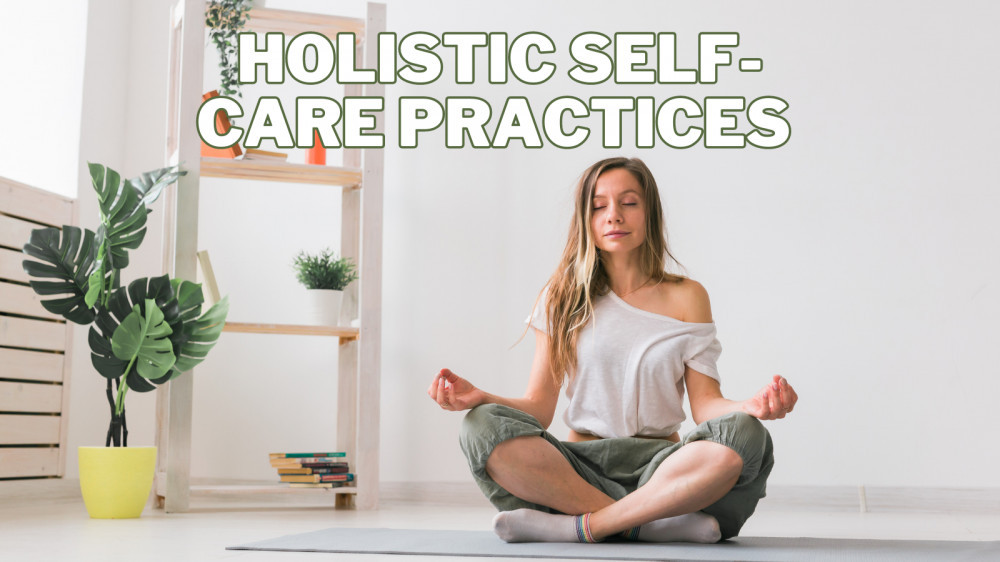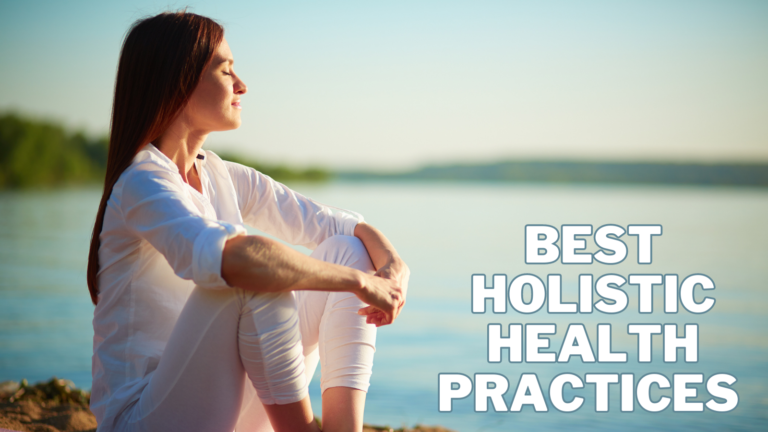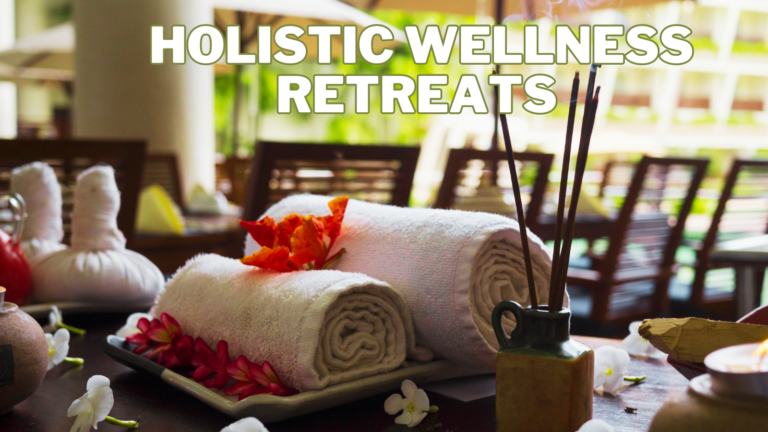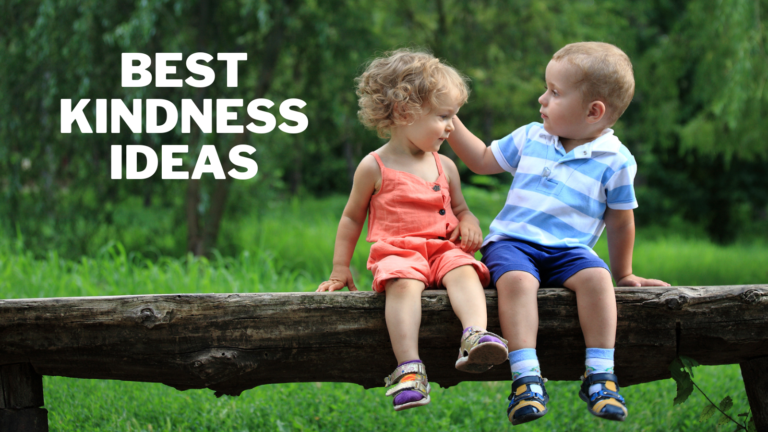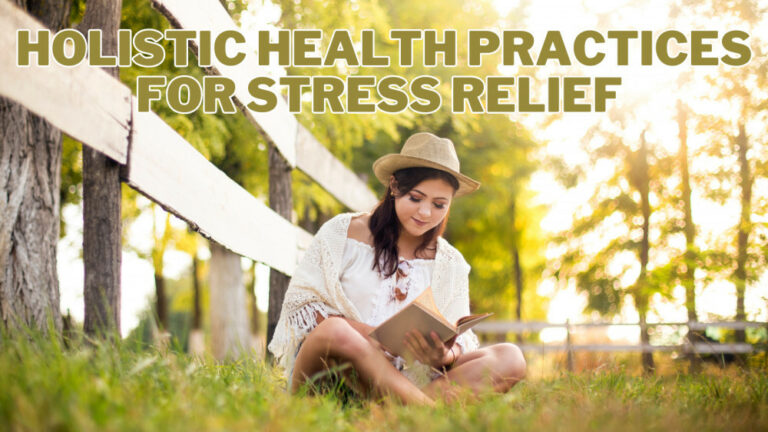Best Holistic Self-Care Practices
Best Holistic Self-Care Practices
Holistic self-care involves nurturing every aspect of one's being—physical, emotional, mental, and spiritual—to promote overall well-being and harmony.
Incorporating various practices and activities can enhance our self-awareness, develop resilience, and find a deeper sense of fulfillment.
This article will explore the concept of holistic self-care and delve into various practices that can help you create a balanced and nourishing self-care routine.
From cultivating mindfulness and engaging in physical activities to nourishing your relationships and exploring your spirituality, we will provide practical tips and insights to empower you on your self-care journey.
Remember, self-care is not a one-size-fits-all solution. Each person's needs and preferences may vary, and it's important to tailor your self-care routine to suit your individuality.
By adopting a holistic approach to self-care, you can cultivate a sustainable and transformative practice that supports your overall well-being and helps you thrive in all aspects of life.
Best Holistic Self-Care Practices
Holistic self-care practices encompass many activities that promote well-being and foster a sense of balance in all aspects of our lives.
By addressing the needs of our mind, body, and spirit, these practices encourage a comprehensive approach to self-care. Here are some key details about various holistic self-care practices:
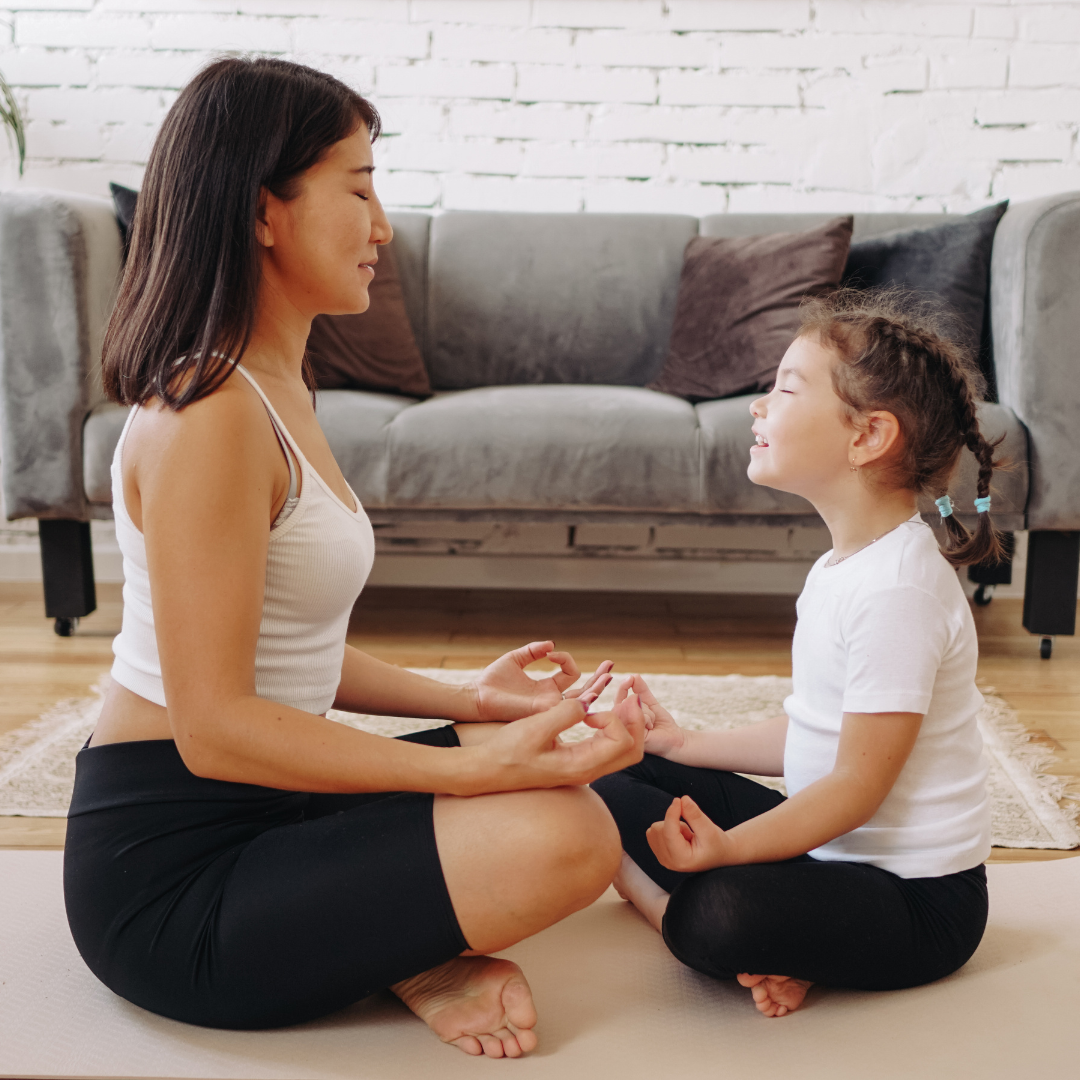
1. Mindfulness And Meditation
Mindfulness is bringing attention to the present moment and observing it without judgment. Individuals can develop a heightened sense of self-awareness by consciously focusing on the sensations, thoughts, and emotions that arise in the present.
Mindfulness allows us to observe our thoughts and feelings without getting caught up in them, creating a space for clarity and understanding.
Meditation, on the other hand, is a specific technique for cultivating mindfulness. It involves setting aside dedicated time to sit quietly, often in a comfortable position, and focus attention on a particular point of focus, such as the breath or a mantra.
Through regular meditation, individuals can train their minds to become more calm, centred, and focused. Engaging in mindfulness and meditation practices has numerous benefits for holistic self-care.
Firstly, they help reduce stress by allowing individuals to detach from the ongoing thoughts and worries that often dominate the mind.
Mindfulness and meditation can create a sense of inner peace and relaxation by cultivating a non-judgmental awareness of the present moment.
Additionally, regular mindfulness and meditation practices enhance self-awareness. By observing our thoughts, emotions, and bodily sensations without judgment, we develop a deeper understanding of ourselves.
This self-awareness allows us to identify patterns, triggers, and areas for personal growth, leading to greater emotional intelligence and self-compassion.
Mindfulness and meditation improve mental clarity and focus. By training the mind to stay present, individuals can enhance their ability to concentrate on tasks and make clearer decisions.
This mental clarity also promotes creativity and problem-solving skills. Incorporating mindfulness and meditation into your self-care routine can be a manageable time commitment.

2. Physical Activities
Physical activities are vital in holistic self-care because they support physical health and promote overall well-being. Regular exercise, whether walking, jogging, yoga, dancing, or any other form of movement, offers numerous benefits.
Firstly, physical activities contribute to cardiovascular fitness, improving heart health and circulation. They also enhance muscular strength, endurance, and flexibility, leading to better physical performance and reduced risk of injuries.
To incorporate physical activities into your holistic self-care routine, it's important to choose activities that you enjoy and that align with your interests and abilities.
Find activities that make you feel energized, fulfilled, and engaged. Whether you prefer solo exercises or group activities, prioritize consistency and make it a habit to engage in physical activities regularly.
Start with small, achievable goals and gradually increase the intensity and duration as your fitness level improves.

3. Nourishing Nutrition
Nourishing nutrition is a crucial component of holistic self-care, as it directly impacts our physical health, energy levels, and overall well-being.
By paying attention to our diet and making conscious choices, we can provide our bodies with the essential nutrients they need to function optimally.
A wholesome and balanced diet includes a variety of fresh fruits and vegetables, which are rich in vitamins, minerals, and antioxidants that support immune function, cellular health, and disease prevention.
Whole grains, such as quinoa, brown rice, and whole wheat bread, provide complex carbohydrates for sustained energy and dietary fiber for healthy digestion.
A holistic approach to nutrition involves mindful eating, which means being present and aware of the eating experience. Take time to savour and enjoy your meals, focusing on hunger and fullness cues.
Mindful eating encourages a healthy relationship with food. It promotes a balanced approach that includes indulging in treats in moderation while prioritizing overall nourishment.
Remember that nutrition is not about strict rules or deprivation but about making sustainable and informed choices. Listening to your body's needs, preferences, and any specific dietary considerations is essential.
Consulting with a registered dietitian or nutritionist can provide personalized guidance and support in developing a nutritional and sustainable eating plan that aligns with your holistic self-care goals.

4. Restorative Sleep
Restorative sleep is an essential pillar of holistic self-care. It plays a fundamental role in supporting overall well-being and promoting optimal mind-body functioning.
Adequate and restful sleep is crucial for cognitive function, mood regulation, immune health, and physical recovery. A regular sleep schedule is essential to encourage good sleep.
Going to bed and waking up simultaneously each day regulates the body's internal clock, promoting a more familiar and restorative sleep pattern.
Establish a soothing bedtime routine that tells your body it's time to unwind. This can include pastimes like reading a book, having a warm bath, doing easy yoga poses or stretching, or practicing relaxation methods like deep breathing or meditation. Practicing relaxation techniques before bedtime can help calm and prepare the mind for sleep.
Activities such as listening to relaxing music, practicing progressive muscle relaxation, or engaging in guided imagery or visualization exercises can promote peace and facilitate a transition into a restful sleep state.
Prioritizing sufficient sleep duration is crucial for holistic self-care. Most adults require 7-9 hours of sleep per night for optimal functioning, although individual needs may vary.
Consistently getting enough sleep supports cognitive processes such as memory consolidation, attention, and problem-solving skills. It also enhances emotional regulation, reducing the likelihood of mood disturbances and promoting mental well-being.
Restorative sleep is also essential for physical health and recovery. During sleep, the body undergoes processes that repair tissues, regulate hormone levels, and support immune function.
Sufficient sleep duration and quality contribute to overall physical vitality, energy levels, and the body's ability to heal and recover from daily wear and tear.

5. Emotional Well-Being
Emotional well-being is a crucial aspect of holistic self-care. It encompasses our ability to understand, express, and manage our emotions healthily and constructively.
Caring for our emotional well-being involves creating a safe space to acknowledge and process our feelings and developing skills to navigate them effectively.
Engaging in creative outlets, such as painting, drawing, playing music, or dancing, can also be instrumental in nurturing emotional well-being.
These activities provide an expressive and cathartic way to channel emotions, tap into our inner creativity, and find joy and fulfillment. Creative outlets offer an opportunity for self-discovery, self-expression, and a sense of accomplishment.
Connecting with supportive friends and family is vital for emotional well-being. Sharing our feelings with trusted individuals who provide a compassionate and understanding ear can offer validation, comfort, and a sense of belonging.
Social support helps alleviate loneliness, enhances our ability to cope with stress, and promotes emotional stability.
Developing emotional intelligence is essential for holistic self-care. It involves recognizing and understanding our own emotions and those of others.
By cultivating emotional intelligence, we can effectively manage and regulate our emotions, communicate assertively and empathetically, and navigate interpersonal relationships with greater ease and harmony.

6. Spiritual Exploration
Spiritual exploration is a transformative aspect of holistic self-care that goes beyond religious affiliation and taps into a deeper sense of meaning, purpose, and connection.
It involves exploring and nurturing the spiritual aspects of one's being, allowing one to cultivate a sense of inner peace, fulfillment, and harmony with oneself and the world around one.
Connecting with nature is another powerful avenue for spiritual exploration. Spending time in natural environments, such as forests, mountains, or bodies of water, can evoke a sense of awe, wonder, and interconnectedness.
Nature can inspire, contemplate, and solace, providing a profound connection to something greater than ourselves.
Practicing gratitude is an integral part of spiritual exploration. Reflecting on and expressing gratitude for your life's blessings, experiences, and relationships can cultivate a deeper appreciation and awareness of the present moment.
Gratitude practices can range from simple daily reflections to keeping a gratitude journal or engaging in gratitude rituals.
Exploring mindfulness in a spiritual context involves integrating mindfulness practices with spiritual beliefs and principles.
Mindfulness allows us to connect deeply with our inner selves, tune into our intuition, and experience spiritual presence and awareness.
Combining mindfulness with spiritual exploration can deepen our connection to the divine, foster a sense of unity, and facilitate personal growth and transformation.

7. Creative Expression
Creative expression is a powerful and transformative aspect of holistic self-care that taps into our innate human capacity for imagination, innovation, and self-expression.
Engaging in creative activities provides an outlet for emotions, thoughts, and ideas that may be difficult to express in other ways.
Whether through painting, writing, playing a musical instrument, or engaging in various crafts, creative expression offers a unique avenue for self-discovery, personal growth, and emotional well-being.
Painting, for example, allows us to visually express our emotions, thoughts, and experiences on canvas. It can serve as a catharsis, enabling us to release pent-up feelings and gain a fresh perspective on our inner world.
Writing, on the other hand, provides an opportunity to explore and articulate our thoughts and narratives. Journaling, poetry, or creative writing can help us process complex emotions, gain insights, and enhance self-awareness.
Playing a musical instrument can be a deeply immersive and therapeutic experience. It allows us to channel our emotions into melodies and rhythms, creating a harmonious expression of our innermost feelings.
Music can uplift our mood, evoke memories, and provide solace during challenging times.
Engaging in crafts, such as knitting, pottery, or woodworking, fosters a sense of focus, mindfulness, and accomplishment.
These activities enable us to engage our hands and minds, promoting flow and deep concentration. The tangible outcome of our craftwork can be a source of pride, satisfaction, and a reminder of our creative abilities.
Creative expression has been shown to reduce stress, promote relaxation, and enhance overall well-being. It allows us to tap into our intuition, connect with our authentic selves, and cultivate a sense of purpose and fulfillment.
Engaging in creative activities can also foster a sense of playfulness and childlike wonder, bringing joy and lightness into our lives.

8. Digital Detox
Digital detox refers to intentionally disconnecting from digital devices and technology for a period of time to restore balance and well-being in one's life.
With the pervasive presence of screens and constant connectivity, taking breaks from technology has become increasingly important for holistic self-care.
Setting aside dedicated time for a digital detox allows us to reclaim our time, attention, and energy. It provides an opportunity to escape the constant stream of information, notifications, and distractions that can contribute to stress, anxiety, and overwhelm.
By creating space for a digital detox, we can intentionally shift our focus towards activities promoting relaxation, connection, and being fully present.
During a digital detox, engage in activities that nourish your mind, body, and soul.
This can include spending time in nature, practicing mindfulness or meditation, reading a book, engaging in physical exercise or hobbies, enjoying quality time with loved ones, or pursuing creative endeavours.
Use this time to reconnect with yourself, others, and the world around you without the constant interruption of technology.
A digital detox can have numerous benefits for our well-being. It allows our brains to rest and recharge, reducing mental fatigue and promoting mental clarity.
It can improve sleep quality by reducing exposure to the stimulating effects of screens, artificial light, and information overload before bedtime.
Disconnecting from technology also encourages more meaningful connections and deeper conversations with the people around us, fostering stronger relationships and social well-being.
To make the most of a digital detox, it's helpful to establish clear boundaries and guidelines for yourself. Communicate your intention to disconnect from technology with friends, family, and colleagues, and set expectations regarding your availability.
Turn off notifications, put devices in silent mode, or temporarily remove them from your immediate surroundings to create a supportive environment.

9. Nature Connection
Nature connection is a fundamental aspect of holistic self-care that allows us to reconnect with the natural world and tap into its transformative benefits.
Spending time in nature provides a respite from the fast-paced, technology-driven modern lifestyle. It allows us to slow down, unwind, and restore our well-being.
When we immerse ourselves in natural environments, such as forests, parks, mountains, or bodies of water, we engage our senses and experience awe and wonder.
Nature's sights, sounds, and smells evoke a deep understanding of peace, beauty, and interconnectedness. This connection with nature can have profound effects on our well-being.
Engaging with nature also has mood-boosting effects. Spending time outdoors and soaking up natural sunlight can increase the production of serotonin, a neurotransmitter associated with happiness and well-being.
Nature's beauty and serenity can uplift our spirits, enhance our mood, and provide a sense of joy and contentment. In addition to the immediate benefits, a connection to nature can foster a deeper understanding of environmental awareness and stewardship.
When we spend time in nature, we develop a greater appreciation for its beauty and importance. This appreciation often translates into a desire to protect and preserve natural spaces, promote sustainable practices, and have a more harmonious relationship with the Earth.
To cultivate a stronger connection with nature, prioritize spending regular time outdoors. This can be as simple as taking a daily walk in a nearby park, tending to a garden, or planning weekend getaways to natural destinations.
Engage your senses by observing the details of the natural world, listening to nature's sounds, and feeling the textures and elements around you.

10. Boundaries And Saying NO
Boundaries and the ability to say no are crucial components of holistic self-care, which empowers individuals to prioritize their well-being and establish healthy relationships and lifestyles.
Setting boundaries involves recognizing and communicating your limits, needs, and values while saying no. It requires assertiveness and the willingness to prioritize self-care over external expectations or obligations.
Establishing boundaries helps prevent overwhelm and burnout by ensuring that your time, energy, and resources are allocated in a way that aligns with your priorities and values.
It allows you to create a healthy work-life balance and protect your physical, emotional, and mental well-being. Setting clear boundaries establishes a framework for managing your commitments effectively, avoiding overextending yourself, and creating space for self-care activities.
Saying no can be challenging, as it often involves overcoming the fear of disappointing others or being perceived as selfish.
However, it is important to remember that prioritizing your well-being and setting boundaries are acts of self-respect and self-care.
By saying no when necessary, you create space for activities that nourish and replenish you, fostering a healthier and more balanced life.
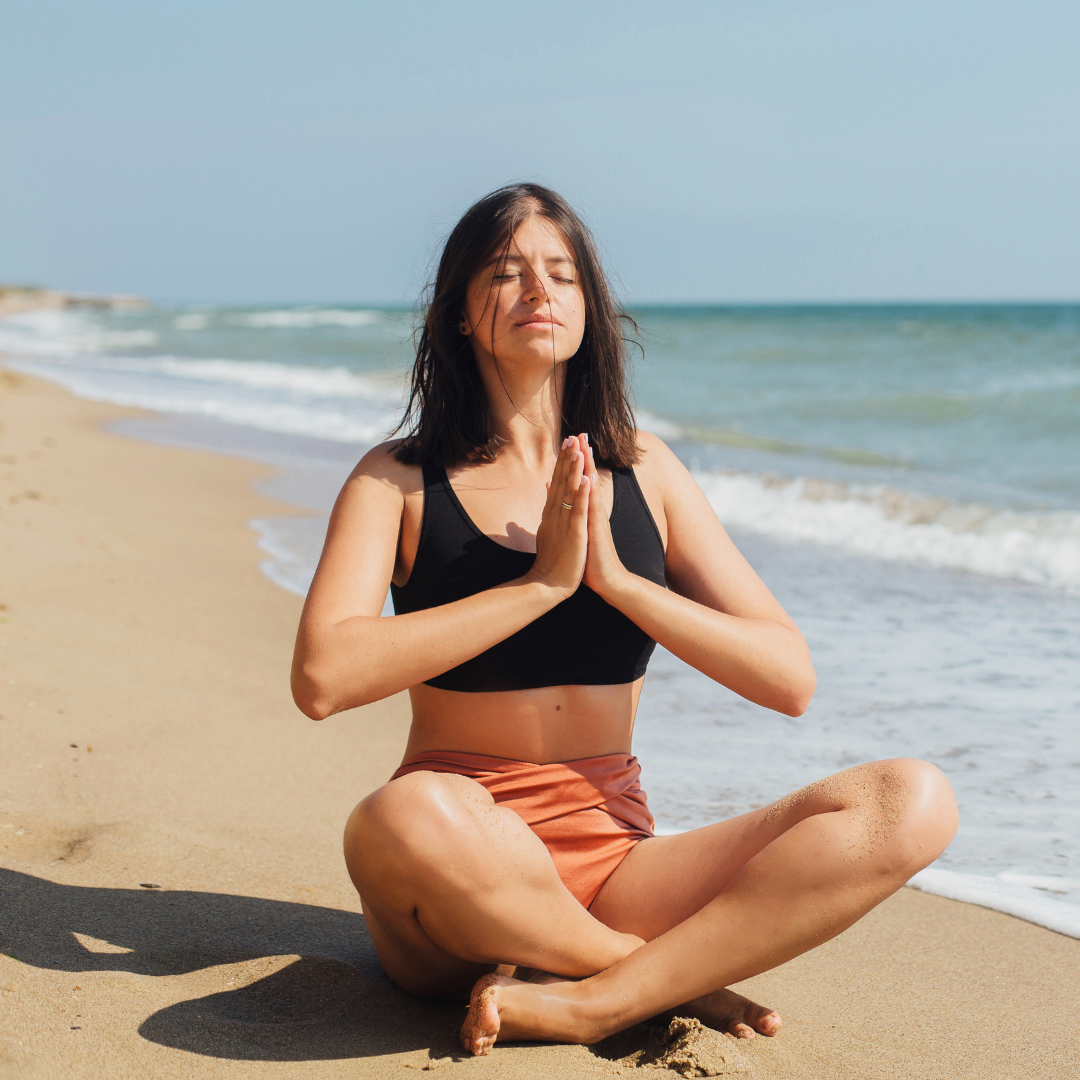
Conclusion
In conclusion, holistic self-care practices encompass various aspects of our physical, mental, emotional, and spiritual well-being.
By nurturing ourselves holistically, we create a foundation for optimal health, balance, and fulfillment in our lives. Integrating these holistic self-care practices into our lives creates a balanced and sustainable approach to well-being.
It is important to remember that self-care is not a one-time event but an ongoing commitment to ourselves. Each practice complements and enhances the others, creating a synergistic effect that supports our overall health and happiness.
I trust you enjoyed this article on the Best Holistic Self-Care Practices. Please stay tuned for more blog posts soon. Take care!
JeannetteZ
>>>Please click here to read my all-inclusive article about A Comprehensive Guide To Healing Naturally<<<
>>>Are you interested in Natural Healing through Herbs? Please click here for my #1 Recommendation<<<
Your Opinion Is Important To Me
Do you have thoughts, ideas, or questions? I would love to hear from you. Please leave your questions, experiences, and remarks about the Best Holistic Self-Care Practices article in the comments below. You can also email me at Jeannette@Close-To-Nature.org.
Disclosure
This post may contain affiliate links. As an Amazon Associate and other affiliate programs, I earn from qualifying purchases at no extra cost to you. Please read my full affiliate disclosure.
You might also enjoy these blog posts:
Best Holistic Wellness Tips For Everyday Life
Best Holistic Wellness Retreats
Best Holistic Health Practices
Best Holistic Health Remedies For Anxiety
Best Holistic Health Practices For Stress Relief

